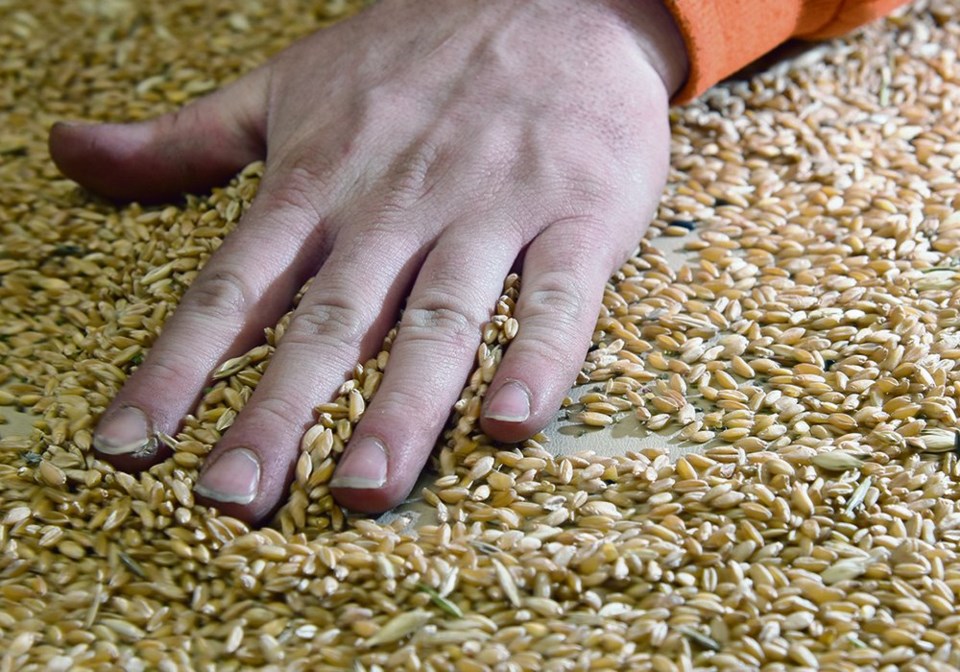WESTERN PRODUCER — Canadian seed growers are following a road map into the digital future, the Saskatchewan Seed Growers Association heard during its recent annual meeting.
Digital certification is already in place and digital seed tags are coming, said CSGA chief executive officer Doug Miller.
The move is part of CSGA 2.0, a business plan developed as part of seed regulatory modernization, released in April 2021.
The Canadian Food Inspection Agency in mid-December released a report on its consultations on modernizing the seeds regulations and noted support for digital information access from more than 700 respondents.
The CFIA report said respondents were generally satisfied with the existing regulations. They said improvements could include continuing to label seed with a seed grade name; potentially including test results on seed labels; including heritage varieties and alternate bred varieties; and, reviewing the current variety cancellation/deregistration process.
Respondents did not want grade tables eliminated, other quality standards added to the regulations, only allowing low-germination seed to be imported for research purposes, removing crop-specific labelling requirements, eliminating grade names for common seed, and having industry responsible for setting purity and germination standards.
The report said CFIA received 320 responses that suggested improvements in planned amendments to four parts of the regulations. These included ensuring traceability of seed sold, streamlining processes, supporting seed saving, and improved labelling.
CFIA said it will consult on options before publishing proposed amendments in the Canada Gazette.
Miller said digital crop certificates were a big step toward an end-to-end digital system that will make the system more efficient. Growers access the certificate through the electronic platform, digitally declare the quantity of grain before cleaning and sign the certificate.
Or they can download a copy of the certificate and fill it out as they previously would have. Growers who don’t have internet access can still have a certificate mailed to them.
A pilot project for digital seed tags is the next step, he told the meeting.
“These are seed tags that can have a QR code or an NFC (near-field communication) chip in them that would enable instant verification,” Miller said.
Code readers would interact with the tags to get more information and access to documentation that the producer or seed company has made available, he said.
“Things like germination, purity analysis, maybe some information about the variety,” explained Miller. “The future is digital and there’s different jurisdictions around the world that are looking at how they can leverage digital seed tags in order to be able to increase the integrity of their systems and also to facilitate information flow.”
CSGA did a blockchain pilot project in soybeans using a digital tag as a handshake between the seed sector and the identity preserved sector.
The business plan calls for a tag pilot project within the breeder or select space but Miller said there is also tremendous value in the bulk business as long as the technology is right.
Discussions with CFIA and industry about the best place to test digital seed tags will take place this year.
Miller said CSGA has applied for funding through the federal AgriInsurance program for the pilot project but it could be 2023 before it takes place.
“We’ve seen too many photos of seed producers at the kitchen table with a long list of blue tags and we just know that there’s better ways to be able to do it. It’s going to help make producers more efficient but also reduce errors within the tags,” he said.
CSGA reviews and validates thousands of tags each year as part of certification.
The organization also wants to develop a variety profile platform as a one-stop shop for all variety information. This would increase transparency and traceability, Miller said.
Saskatchewan seed growers also heard that CSGA certified about 1.25 million acres of seed in 2021, the lowest since 2014. This included nearly 13,000 fields and 2,500 plots, 64 different crops and more than 2,200 varieties.
Certified acres were down 18,000 in Alberta, up by 14,000 in Manitoba and flat in Saskatchewan at 341,000 acres.

